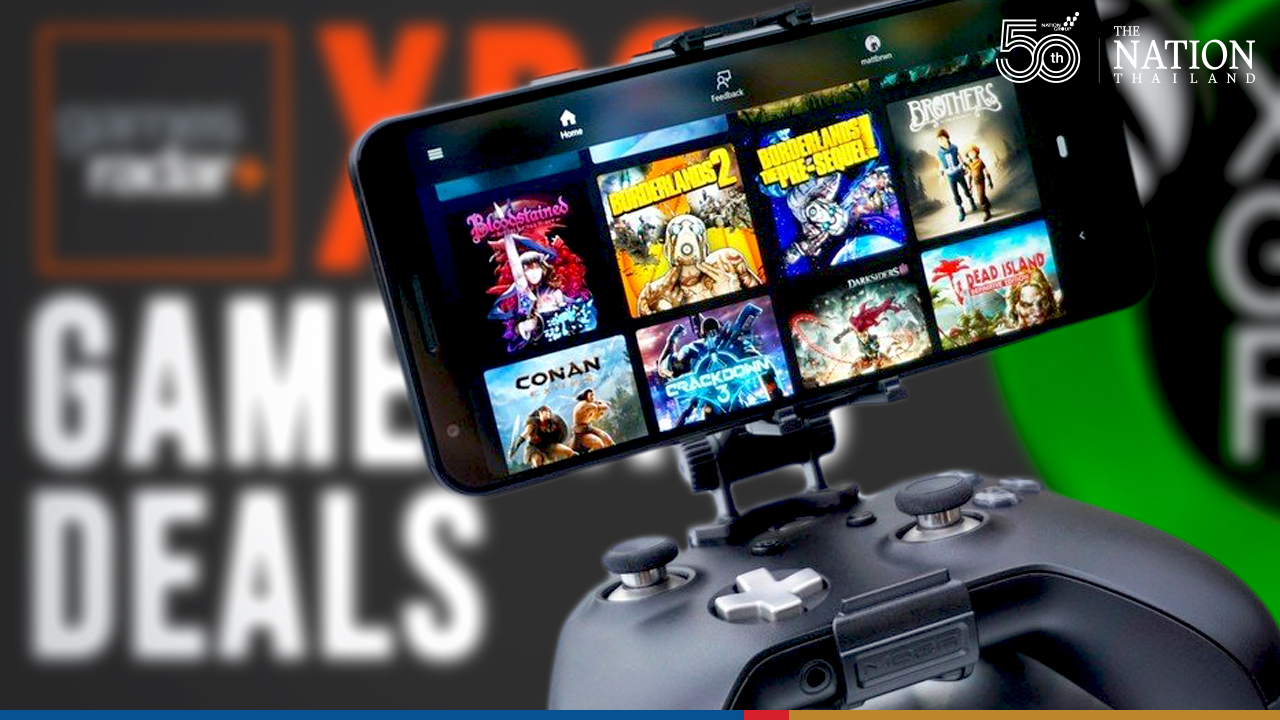Xbox is making a streaming device for Game Pass. Thank Perfect Dark Zero.

One day in December 2014, Kareem Choudry - now the corporate vice president of Microsoft cloud gaming - and his team walked into Xbox chief Phil Spencers office with an Xbox One console. On that device, they booted up "Perfect Dark Zero," an Xbox 360 launch title.
This moment sparked a fundamental change in how Microsoft and Xbox approached the games business. Xbox games could be played on any future iteration of the console. Now, a parallel question is being answered: What if Xbox games can be played on other devices as well?
On Thursday, Spencer announced Microsoft is building its own game-streaming device and working with TV manufacturers to embed Xbox Game Pass into smart sets with no extra hardware except a controller. Spencer also said the company was determining new subscription tiers for Xbox Game Pass. This strategy is similar to one employed by Google's Stadia and Amazon's Luna services, though both are struggling in the market. Microsoft, on the other hand, has its established history and brand trust among the core gaming audience to back it up.
It's been a dramatic shift for the company, away from expensive consoles as the flagship gaming product and toward making the monthly Game Pass subscription service accessible to more consumers. While admitting there's a long road ahead, Spencer said that "only this company, only Microsoft, can bring to bear the global scale, the vast wellsprings of technical innovation, the financial resources, and the deep, decades-long legacy in video games required to truly bring the joy and community of gaming to everyone."
Within a few weeks, Xbox's cloud gaming service on the browser will open up to all members of Xbox Game Pass Ultimate, supported by Google Chrome, Apple's Safari and Microsoft's own Edge browsers. Microsoft is also keen to center its promise of at least one new first-party game offered in Game Pass every quarter. The company is about to flex its acquisition of Bethesda Softworks studios at its upcoming E3 showcase, which will surely support this effort.
It's notable that Spencer's recent remarks and marketing from Xbox in the last year barely touch on the console. His focus is the same as it has been in the last year or so: expanding Xbox Game Pass as a service beyond the console. Although much of the consumer conversation around games continues to focus on box versus box, Spencer hasn't wavered. Xbox is becoming a service beyond a line of hardware.
This effort actually started in the early days of the Xbox One, with Choudry and one engineering team's commitment to software compatibility. Music and video, Choudry thought, had already crossed the digital divide thanks to cloud services and subscription models. He asked himself: "What would it take to game without a console or a PC?" The idea was to make it so phones that could previously only play Angry Birds could now also play every Halo game.
Choudry, a 23-year veteran at Microsoft, helped ensure the Xbox 360 was backward compatible with the first console. In an April interview with The Washington Post, he reminded that Xbox was always using the cloud, even back then. That effort laid the foundation for Microsoft's current strategy. Now, save data from Xbox 360 games from 2009 can be downloaded and revisited by longtime users on newer Xbox consoles.
"We set the consumer expectation, and saved games just kind of worked," Choudry said. "And that was where it started. The work we did to allow the transfer of Xbox 360 games to the cloud is manifested in ways that I never would have thought possible years later."
When Spencer took over the gaming sector of Microsoft after the 2013 launch of the Xbox One, Choudry had a proposal. Choudry asked for one year and 25 of the smartest people in the division to figure out a broad strategy for compatibility across the generations. This included not only the effort to retro-engineer a newer machine to play older games on significantly different hardware, but also starting a conversation with game creators on how to do this and keep their games available in perpetuity. There were webs of legal and contractual bureaucracy that the team continues to navigate today.
"We had to write an emulator that could translate between those two operating systems and hardware in a way that was transparent for the games," Choudry said. "Games push hardware more so than any other different type of computing. It's real time. You've got 33 milliseconds to get that 30 Hz frame out, and if you miss it, gamers know and they let you know very, very fast."
After that pivotal moment with "Perfect Dark Zero," the compatibility effort broadened and eventually looped in the rest of Microsoft, with engineering teams trying to get older games running on 1990s-based microprocessors to more recent applications. This included making sure that any changes in hardware over the years wouldn't disturb the original game experiences, only enhance them, if possible. Choudry said some games would see explosions act differently than they used to, which wasn't going to be good enough for players.
"If you just think in terms of building blocks, we started to wonder how we're going to move this experience into the cloud. It was the same concept," Choudry said. "I took a lot of the same leadership and same expertise and validations skills and said, 'Okay, now I want you to think of that game design to run natively in a user's home, to run it in a data center on the other end of a network.' I would never have predicted that the work we were doing on compatibility and the preservation of games would actually enable us to make a much faster leap."





